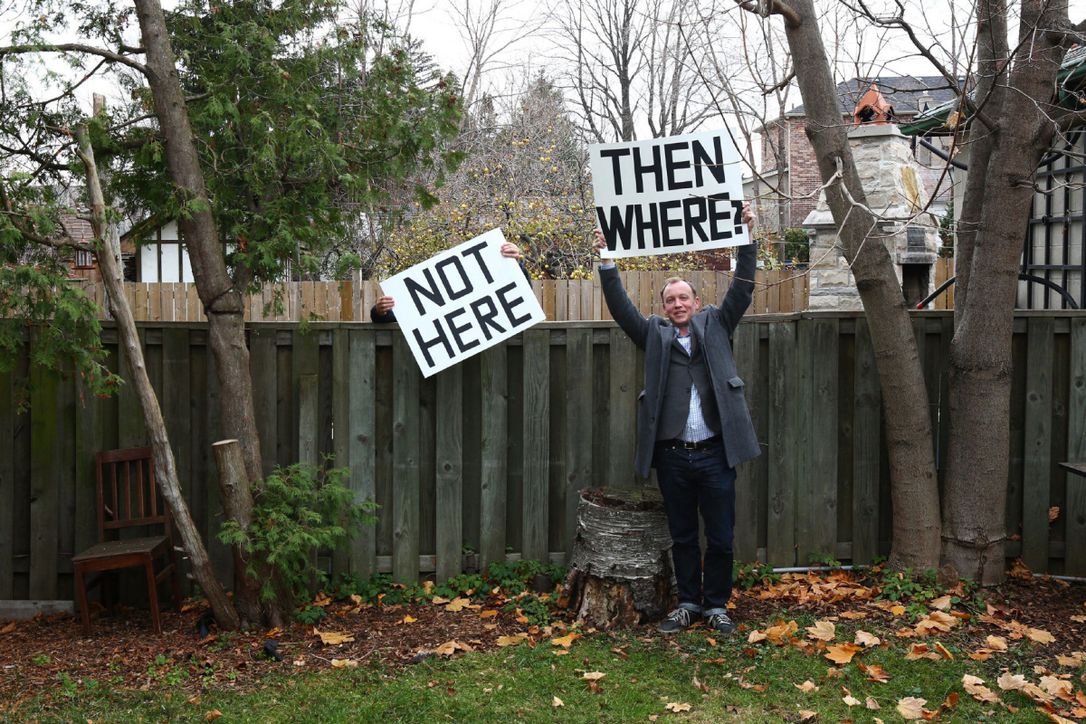NIMBYism: A problem for sustainable development?

Our Office Manager and Carbon Management MSc student, Vanessa McCorquodale, discusses the idea of “NIMBYism” and the effects it has on sustainable development.
COP25 has just finished, ugh, another year of less ambitious commitments than we need. Our leaders are failing us. To my mind, this calls for a much stronger bottom-up approach, but what do we do if low carbon energy solutions are blocked and poo-pooed by local opposition? What is the opposition about, who is opposed and what this NIMBY acronym all about?
What is a NIMBY?
Let’s start with a rough definition, a NIMBY (not in my back yard), is a widely used term to describe a person who is generally positive about an idea…let’s say wind energy but is specifically against having turbines in their locality or a place that has value to them. This notion poses a significant challenge for sustainable development. If we all thought rejected renewable energy devices in our local AND were successful in challenging planning applications, there would never be any sustainable development.
On the example of wind farms, let’s just accept 2 facts; firstly, we all enjoy having access to electricity to power our devices and home and secondly; that climate change is happening and therefore renewable energy (RE) options are part of the solution, i.e. coal power plants to be phased out and renewable options need to take the lead. Incidentally, wind turbines can offset their embodied carbon after as little as 6 months in operation! Bit of a bonus maximus in my book.

Image from Bing
So, you spot a NIMBY in your path, do you groan and expect blocking?
Neither! Don’t judge too soon, there is more going on and consultation is key. There are different views about local opposition and, over the years, research have portrayed NIMBYs in multiple ways from, ignorant, selfish – wanting the ‘problem’ to fall on others or reasonable in their protest.
Generally, NIMBYism used to be recognised as a selfish response and therefore easier to discredit (Burningham, 2000) however, research now shows that the proponent of selfishness is minimal and objections can be rational and well placed e.g. having a firm connection to the area, making it of high use or option use value to a person (van der Horst, 2007).
I would say it’s good practice to remind ourselves that at any given time, there are psychological effects placed on us all. For example, we are more in tune with the present than we are with the future and are therefore primed to ignore the dangers of longer-term climate change. We are also primed to be less concerned about impacts further away from us e.g. proximity is key to a NIMBY’s concerns. So, a wind farm 50 miles away is less likely to be of concern.
Further, the notion of what is desirable about a landscape plays a role. Research shows the absence of infrastructure is a key desirable in landscapes (Woods, 2003) and a sense of self and identity can be strongly derived from a landscape (Korpela, 1989). This is particularly so for older people who have lived in the same area for a period. In contrast, young people who have enthusiasm to travel don’t acquire their sense of place identity until later in life when they settle down in a location. It follows then, that people with high ‘place identity’ are likely to be highly motivated NIMBY campaigners.

Image from Bing
Why bother folk about it, everything works fine as it is…
Well, no it doesn’t. Let’s add a bit more context about why sustainable development is needed and is now, a required deliverable. At the end of COP21, when the United Nations Framework Convention on Climate Change (UNFCCC) met in Paris 2015, we (197 countries) agreed via the Paris Agreement (PA) that we are going tackle climate change by reducing the level of anthropogenic greenhouse gases (GHGs) we emit. We agreed to evidence our efforts via Nationally Determined Contributions (NDCs), to report transparently on the progress. Therefore, as part of a larger EU and global strategy, we need to decarbonise our energy system.
Following a report by Committee on Climate Change (CCC) in May 2019, the Scottish Government committed to change its Net Carbon Zero target for 2045 pointing to more action and higher ambition. I’m afraid I struggle to imagine its final success while NDCs are just that, they are nationally determined I.e. do locals feel they have any power to affect these?
With COP25 having just concluded and yet again ending in compromise and lower ambition than is needed, I know see it is essential that we take a much stronger bottom up approach and agree renewable energy plans with urgency and with fewer planning blockers.
Is local governance the solution to NIMBYism?
In the UK we tend to discuss our energy system in a national context, which means when local plans come to play, there is often push back from locals who don’t want it in their local area.
What about a new thought, what if we devolved the decision-making power to the local or regional level? It might inspire increased open debate about local needs and wants. I wonder if it would increase the adoption of renewable energy technologies across counties.
Locals would likely have a deeper understanding of local issues and preferences. Localities could each take a percentage of the NDC according to their area size and energy demand e.g. find ways to balance the energy demand of their city or town size. By taking on a percentage of the national NDC, each locale would take on accountability to deliver.
Would it not also open opportunities for local firms to up-skill or share valuable skills, such as understanding feasibility or how to create a suitable monitoring, reporting and verification (MRV) mechanism to ensure that developments are reported up and accounted for in the NDC.
I believe this is a good way to motivate climate action in NIMBYs and ensure acceptance and enthusiasm for a low carbon energy transition. So, got low carbon energy decisions to make? Let’s hand it to the NIMBYs!
Want to learn more? Read some of the articles Vanessa has mentioned:
NIMBY or not? Exploring the relevance of location and the politics of voiced opinions in renewable energy siting controversies, Dan van der Horst, School of Geography, Earth and Environmental Sciences, University of Birmingham
Burningham, K., 2000. Using the language of NIMBY: a topic for research, not an activity for researchers. Local Environment 5 (1), 55–67
Korpela, K (1989) Place-identity as a product of environmental self-regulation. Journal of Environmental Psychology Volume 9, Issue 3, September 1989, Pages 241-256
Woods, M., 2003. Deconstructing rural protest: the emergence of a new social movement. Journal of Rural Studies 19, 309–325.
Martinez E. Life cycle assessment of a multi-megawatt wind turbine. Renewable Energy. Mar 2009 Vol24, issue 3, p667-673
Cover image source here.





Recent comments